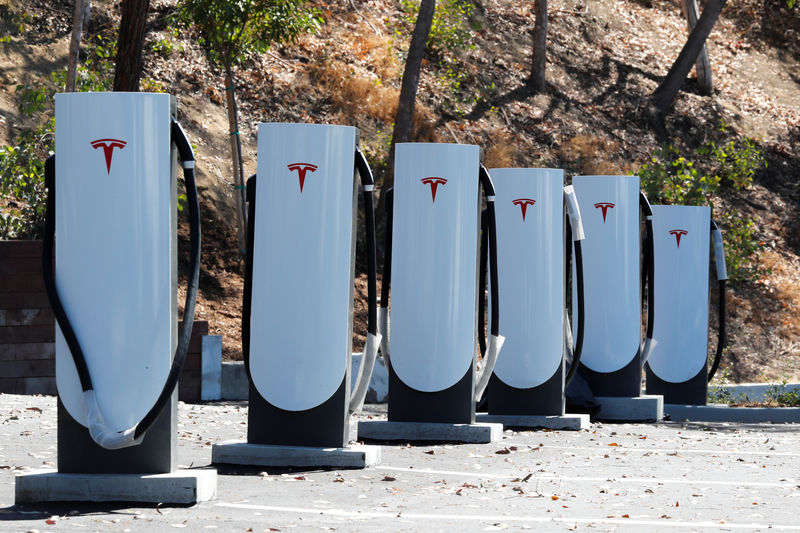(Bloomberg) -- Tesla (NASDAQ:TSLA) Inc. short-sellers have taken a decisive lead in the perennial tug-of-war between bulls and bears on Wall Street.
As the electric carmaker’s shares plunged 30% this year, the stock has become the most profitable short bet in the U.S., according to Aug. 9 data from S3 Partners. Bears have seen a whopping $2.75 billion of mark-to-market gains in 2019, according to the firm’s head of research Ihor Dusaniwsky.
It’s unlikely that short-sellers’ newfound riches were what Elon Musk was envisioning during his long-running Twitter feud with skeptics. The electric-carmaker’s chief executive officer took to social media several times to goad the ‘‘value destroyers” in better times, such as when he warned them in May 2018 to prepare for the “short burn of the century.”
While shares have bounced back a bit from their lows in early June, Tesla remains on pace for its worst annual decline on record. The downturn comes amid growing concern about demand for its vehicles and the company’s ability to turn profits.
Short-seller gains for Tesla are more than triple this year’s second-most profitable bearish bet: drugmaker AbbVie Inc (NYSE:ABBV)., which returned about $776 million. DuPont (NYSE:DD) de Nemours Inc. was third, handing bears $631 million in mark-to-market gains.
Wondering about the worst-performing shorts? Surprisingly, one of the costliest bearish bets in the market this year, Beyond Meat (NASDAQ:BYND) Inc., is not on the top 10 list. Short-sellers got a boost after a surprise secondary offering last month sent the stock plunging. Beyond Meat is trading roughly 30% below its late July peak.
Depository receipts for Alibaba (NYSE:BABA) Group Holding Ltd. have yielded the largest loss for bears so far, reaching nearly $3 billion. That’s followed by Apple Inc (NASDAQ:AAPL). and Advanced Micro Devices (NASDAQ:AMD) Inc., which despite the trade war tumult, have been difficult to bet against.
The S&P 500 Information Technology Index, which includes half of the names in this list, has gained 28% in 2019 so far.
(Updates with past Elon Musk comments in fourth paragraph.)
